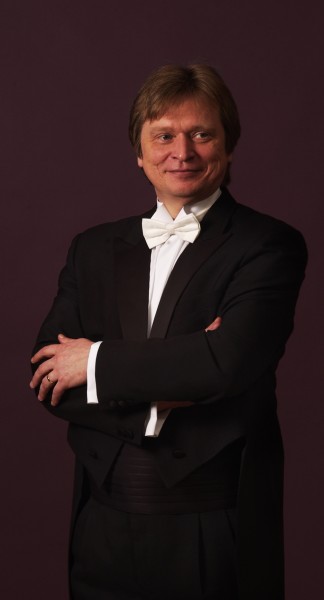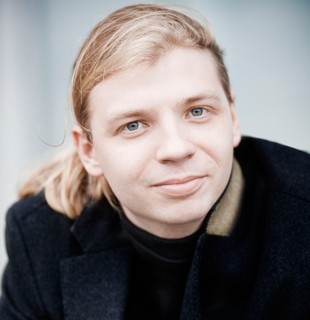St. Petersburg Philharmonic, young pianist ignite concert at Broward Center

Nikolai Alexeev conducted the St. Petersburg Philharmonic Orchestra Tuesday night at the Broward Center.
So many Russian orchestras tour the world today, some excellent, others, despite impressive-sounding names, mediocre.
But the St. Petersburg Philharmonic Orchestra is the real thing. The ensemble’s history goes back to Czar Alexander III and it remains vigorous today, as it showed Tuesday at a terrific concert in Fort Lauderdale. (The Broward Center was at best two-thirds full for this concert even with such a distinguished orchestra on the schedule.)
The orchestra’s sound is unique, dark-hued and resonant, with an almost preternatural unity among strings, a brass section with just enough edge to stand out and wind soloists with rich and distinctive tones that made every flute, oboe or clarinet solo a highlight.
Under conductor Nikolai Alexeev, the orchestra opened with selections from Rimsky-Korsakov’s opera The Legend of the Invisible City of Kitezh. The orchestra gave a deeply colored account of this brilliantly orchestrated, melodious music, with its long wind melodies over shimmering strings. Even when playing softly, one could feel the ensemble’s power.
Next came …al Niente by the contemporary Georgian composer Giya Kancheli. The name comes from an Italian musical term that indicates the performer is to allow the music to fade to nothing, and here was another work that showcased the St. Petersburg ensemble’s unique, layered sound.
This is a tonal, highly accessible work, although you have to be able to stand a lot of musical suspense. A work of substantial length, it felt like many minutes of unresolved tension, as slow-moving harmonies stretched to the breaking point without resolving, creating an air of expectation, often ominous. More than once the music went through a crescendo to what you’d expect to be a big climax and then suddenly there was silence, and after a moment a lonely flute or oboe solo would float over a pillow of strings. A few big, brassy outbursts ultimately resolved much of the tension.
South Florida might not need another performance of the Tchaikovsky Piano Concerto No. 1, but if you’re going to hear this work for the 20th or 30th time, let it be with a soloist of the caliber of the young Russian pianist Denis Kozhukhin. A former student of the Spanish pianist Claudio Martinez-Mehner, whose performances have been highlights of the Miami International Piano Festival, Kozhukhin is a fiery and dramatic performer, whose daring style made the most of this concerto.
He played the huge ascending chords that accompany the opening theme in the orchestra in a forward-leaning manner that gave an extra impetus and excitement to the beginning of the work. No matter how fast and thick the notes came, his mastery of the keyboard allowed him to bring a light, sure and accurate touch that brought unusual clarity to passages that can often seem like blurs of notes. From languid melodies to fierce runs in double octaves, he embraced the concerto’s pathos and drama, with none of the obvious keyboard pounding of lesser musicians.
In the slow movement, the orchestra had a chance to shine, as solo cello, flute and oboe gave sensitive accounts of the theme over an embroidery of notes in the piano. Kozhukhin seized center stage again in the last movement, displaying fluency at the keyboard and a fearless approach to the work’s virtuoso challenges.
Posted in Performances
One Response to “St. Petersburg Philharmonic, young pianist ignite concert at Broward Center”
Leave a Comment
Wed Feb 19, 2014
at 11:27 am
1 Comment






Posted Feb 20, 2014 at 10:02 am by D Rizzo
Although I enjoyed the performance and fully agree with the review I was very bothered by the actual sound of the piano, not the technique. During the interval there was a technician tuning the instrument but its sound was not full and rich, but disappointingly thin and even somewhat tinny, not what you would expect from a Steinway concert grand. I sat in the first row of the Upper Orchestra, so I don’t feel I can blame the poor sound on my position in the auditorium. My fellow concert goer also commented on the poor sound. Was it just us or a problem with the instrument?